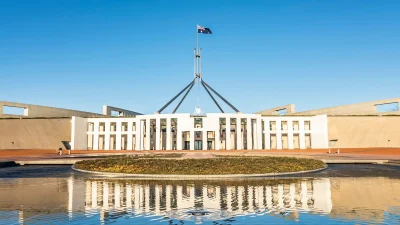COVID-19 to increase differences between sectors, firms and countries


The COVID-19 crisis is expected to accelerate underlying disruptive forces affecting economies and financial markets, which will increase the difference between companies, sectors and countries, according to PIMCO.
The firm’s portfolio manager, asset allocation, Geraldine Sundstrom, said that the six main secular disruptors identified by PIMCO a few years back, which included the rise of China, populism, ageing populations, technology, financial market vulnerability and climate change, would now be amplified.
As far as China was concerned, the manager expected it would be extremely difficult to “go back to the way it was” although the economy would ultimately recover from the pandemic-induced recession.
Sundstrom reminded that China’s economic strategic plan, Made in China 2025, assumed the move beyond the “world’s factory” to gain greater self-sufficiency and protect its workers from foreign competition as shorten supply chains may further reduce world trade and push deglobalisation.
According to PIMCO, less trade between the world’s two largest economies may also accelerate their competition to dominate technological development, stepping up the race for innovation in, for example, 5G and the robotization of services, including medical ones.
“As old inefficiencies are identified and new preferences developed, the changes that the COVID-19 crisis has led to might be more permanent than we think and have more consequential implications,” Sundstrom said in the note.
On the other hand, demand for healthcare and technology remained not only immune to the crisis, but also to be benefiting from it, while traditional manufacturers, financial institutions, and energy suffered the most.
Additional, technology-led world, combined with reduced global trade, may need less oil and more automation, while banks’ business models may be challenged with the protracted level of low interest rates.
“While governments have started to take steps toward loosening the lockdown, the financial, economic, and health recovery from the pandemic is, unfortunately, unlikely to be smooth or easy,” Sundstrom said.
“As such, investors should not underestimate that the way to achieve their financial goals might be markedly different now, as the “disruptors” take an ever-larger share of the pie from those “disrupted.” The ability to distinguish between both is becoming crucial.”
Recommended for you
T. Rowe Price believes Australian growth is successfully managing to shrug off consumer weakness, but the firm’s multi-asset team is not yet positive enough to increase its underweight position.
Iress has issued an update denying the validity of “certain statements” made by an alleged threat actor, following a cyber incident last weekend.
The latest budget papers have outlined a $10 million provision for ASIC greenwashing enforcement activity as well as funds for a sustainable labelling regime to be partially met by industry levies.
Betashares has expanded its fixed income solutions with the launch of a new ETF offering exposure to subordinated bonds issued by the big four Australian banks.














